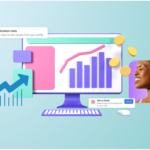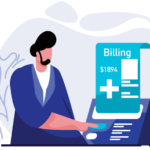Certain tools and processes have become indispensable for different businesses, particularly when selling a business. Secure software is a crucial element. One of the key components that can drive revenue and improve efficiency is the effective use of a virtual data room (VDR).
Data room providers offer secure and virtual spaces for businesses to store, manage, and share sensitive information with internal teams, partners, and potential investors. These data room services have become a part of various business processes, such as mergers and acquisitions, due diligence, financial audits, legal proceedings, etc.
What are virtual data rooms?
A virtual data room is a secure online platform for storing and managing confidential documents for selling a business or during other complex corporate transactions such as mergers and acquisitions (M&A). Unlike traditional physical data rooms, which require visiting a specific location to review documents, a VDR allows authorized users to access necessary information from anywhere.
Key features of virtual data rooms
Virtual data room providers offer software with a wide range of functionalities that go beyond simple document storage. Here is the list of VDR features:
- Security
- Encryption. Virtual data rooms use advanced encryption methods to protect data during transfer and storage ensuring constant security and privacy throughout the data lifecycle.
- Admin controls. Within VDRs, administrators can set and enforce precise permissions and access controls, facilitating secure and seamless collaboration within their organization and with external partners. Only authorized users can access, edit, or share sensitive data, significantly reducing the risk of a data breach.
- Complete audit trail. VDRs allow businesses to maintain a detailed and continuous record of all access and activity logs, ensuring full visibility and accountability for the activities taking place during each project. This robust auditing capability helps monitor user activities, identify potential security threats, and ensure compliance with regulatory requirements.
- Advanced sharing. Settings such as passwords, expiration dates, watermarks, disabled download, and print ensure that only the right people access your data.
- Fast deployment
- User-friendly interface. Virtual data room software is designed with intuitive interfaces, making it easy for users to navigate and manage documents.
- Easy to use. Using the VDR does not require extensive training and can be completely integrated into daily workflow. This helps eliminate using insecure file-sharing tools.
- Collaboration
- Version control. VDRs keep track of document versions, ensuring stakeholders work with the most up-to-date information and can roll back previous versions if needed.
- Secure external file sharing. VDRs provide advanced external corporate file-sharing controls. Users can set passwords, open limits, get email notifications when files are accessed, and monitor complete activity logs.
- Integrations. Most data rooms integrate with tools and platforms businesses and their partners use, allowing companies to maintain a familiar way of corresponding.
- Custom brand and domain. VDRs can be customized to use corporate brands, colours, and logos.
- Accessibility
- Remote access. VDR users can access easily with an internet connection, enabling seamless collaboration across geographies.
- Mobile compatibility. Many VDRs offer mobile apps, allowing users to access documents at any time and place.
Angelo Dean, CEO at datarooms.org says: “Comparing data room providers is essential for making informed decisions in today’s fast-paced business environment. Evaluating these providers involves analysis of their security features.” Before choosing the best VDR software for your business look at a virtual data room companies rating.
With the transformation of traditional business processes through digitization and the rise of remote working, virtual data rooms have become indispensable tools. The software is a secure, organized, and accessible system to handle sensitive data, facilitating smooth transactions and collaborations. Leveraging the VDR benefits, businesses can enhance their operations, maintain compliance, and protect their valuable data.
How dataroom software can drive revenue
Using the VDR software, businesses can collaborate with buyers in one customised data room and close deals with signable order forms. VDRs also help to streamline the onboarding process by allowing clients to access all materials in one place. Meanwhile, sales managers can track whether clients have accessed their onboarding portal and get notified of who’s looking. The ways revenue is driven using VDRs are:
- Efficient due diligence. Due diligence is the most pivotal phase of any business deal; it includes a precise analysis of the seller’s financial operations, legal issues, and other key aspects. VDR software makes this process more effective by providing a centralised, organised platform where all necessary files are kept. Buyers can approach these documents incidentally, which is particularly useful in today’s globalised market.
- Security and confidentiality. The company buying includes the exchange of sensitive information. All information shared during this process must be protected from unauthorized access. Data rooms have robust security characteristics to provide authorised individuals access to the data. This level of security is important for maintaining the confidentiality of the deal.
- Communication and collaboration. A VDR serves as a collaboration hub. The VDR’s built-in tools allow parties to communicate and collaborate directly within the platform, streamlining the process and ensuring properly documented discussions. This reduces the possibility of miscommunication and helps keep the transaction accurate.
- Transparency and control. A VDR provides the seller with relevant insights into the buyer’s involvement and interests by controlling user activity. Virtual data rooms’ access regulations help sellers manage data tracking, ensuring that sensitive information is only shared with those who need it.
- Regulatory compliance. There are rigorous principles governing the exposure of information during business dealings. The VDR software establishes compliance with these requirements by providing a secure, verified platform for file sharing. This is especially significant in highly controlled finance areas.
Conclusion
In today’s progressive business world, data has become the crucial element that drives decision-making, modernisation, and development. The demand for secure and efficient data management solutions has never been greater, as companies increasingly depend on data for strategic planning, mergers and acquisitions, and everyday business operations. Secure software such as virtual data rooms are fundamental to drive revenue and efficiency.

















